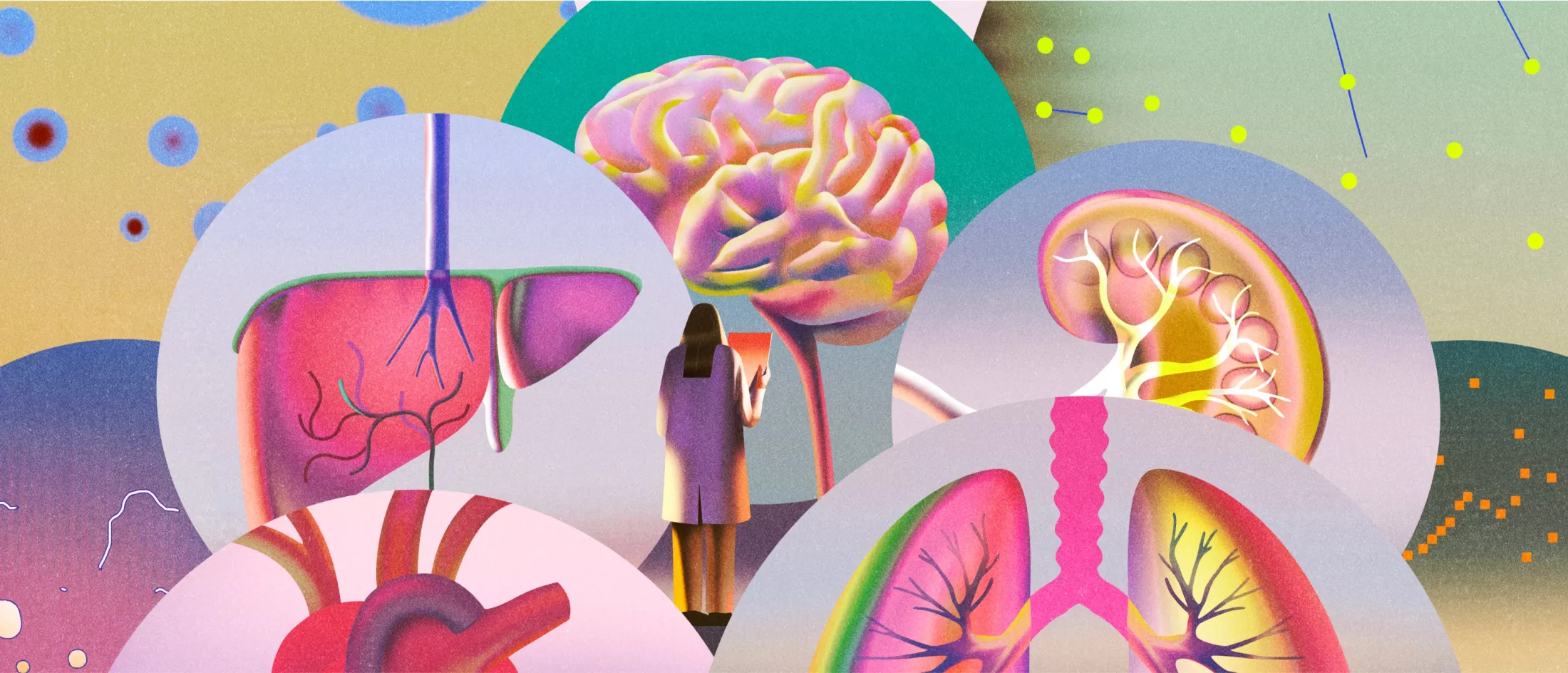Over 850 Active Clinical Trials Provide Access to the Latest Treatments and Technologies
Our world-renowned physician scientists continually advance our understanding of health and disease, innovating new pathways of care.

Find a Clinical Trial
Trials by Category
Frequently searched categories

What is a Clinical Trial?
For centuries, medical advancements have improved quality of life, enabling longer and healthier lifespans. These strides have changed the course of human history, and the cutting-edge medical research happening today promises to create an even brighter future. Clinical trials are at the forefront of this progress, serving as the rigorous testing ground for new drugs, diagnostic tests and therapeutic treatments. Medical investigators tirelessly work to discover new ways to prevent, detect and treat various diseases, reinforcing the crucial role of research in driving medical innovation.
Clinical trials go through multiple phases to assess the safety, effectiveness and potential side effects of new treatments, heavily relying on the participation of qualified volunteers. The data collected from these participants is invaluable, offering insights into a wide array of medical conditions and potential cures. From cancer treatments and substance abuse recovery programs to advancements in prosthetics and immunizations, clinical trials have been pivotal in various medical breakthroughs. Participating in a clinical trial not only helps advance the field but can also lead to significant discoveries that have the potential to improve health and save lives.
Participating in a Clinical Trial
Eligibility for participation in a clinical trial varies from study to study. While some trials seek healthy individuals, others require participants with particular medical conditions like cancer, diabetes, or high cholesterol. At Montefiore Einstein, we welcome volunteers across various age brackets and diverse health statuses.
Montefiore Einstein hosts more than 850 ongoing clinical trials covering a wide array of therapeutic areas, and we're actively looking for volunteers to join various studies. If you're interested in participating, start by browsing our clinical trial database to find a study that aligns with your interests and medical condition. Should you identify a trial that you'd like to join and meet its eligibility criteria, simply click on the link within the trial's description to contact the overseeing researcher via call or email.
- Clinical trials have paved the way for numerous vital medical breakthroughs, benefiting millions through improved healthcare treatments and practices. When you participate, you contribute to this legacy of innovation.
- Diversity among trial participants is crucial because medications and therapies can have varied effects on different individuals. By including a wide range of participants, clinical trials can ensure the safety and efficacy of new treatments across diverse populations.
- People opt to participate for a variety of reasons. Some want to be proactive in their healthcare journey and gain access to potentially new and promising treatments. Others are motivated by the chance to contribute to scientific progress that could benefit society at large.
Each study has its unique set of eligibility criteria, which may or may not allow for multiple family members to join.
Some studies offer compensation for time and travel. If the amount exceeds $600 per year, it is taxable income.
Trial Process
Data types differ across studies. Your research team will elaborate on what will be collected and why.
Some trials offer experimental treatments, available only within the trial setting.
Data from the trials help researchers answer key questions, and details about data use and sharing will be given during informed consent.
In drug trials, data gathered during Phase I and Phase II are crucial for assessing a drug's safety and deciding whether further testing is needed. The U.S. Food and Drug Administration (FDA) reviews the outcomes of Phase III trials to determine whether the drug or treatment is both safe and effective enough for public use. Details about how your information will be kept confidential and shared will be covered in the informed consent stage.
Trial duration varies by the nature of the disease and the treatment being evaluated.
While success is not guaranteed, trial outcomes could lead to medical breakthroughs that benefit a wider population.
General Questions
Before joining a study, volunteers go through an informed consent process. This involves a detailed explanation of the study's objectives, procedures, risks and benefits. Participants have ample time to ask questions and decide whether to participate.
Here are some questions to ask when deciding whether to volunteer for research.
Clinical trials are available at various locations across Montefiore Einstein campuses.
The potential risks and benefits will vary from study to study and will be explained in detail during the onboarding process. There is a chance that participants will experience side effects from the treatment they receive. The treatment being studied, or the information collected, may benefit the people taking part in the study, but the outcome is not guaranteed.
Absolutely, participating in a trial doesn't affect your ongoing medical care. Discuss your decision to volunteer with your primary physician.
A placebo is an inactive substance used for comparison in some trials. Whether a trial uses a placebo and your likelihood of receiving it will be clarified before you join.
Typically, medications and tests directly related to the trial are free. However, confirm this during the informed consent process.
Yes, participation is voluntary, and you can exit a study at any time without affecting your regular medical care.
Privacy
Federal regulations provide privacy protections for participants in some clinical trials. We follow these and other strict guidelines to safeguard volunteers’ private health information.
Protecting your privacy, including the confidentiality of your medical records, is something we take very seriously. We take special precautions to safeguard your medical information, including any data that identifies you, when you take part in a clinical trial. For example, whenever possible, researchers use a code instead of your name to associate blood or tissue samples with your medical records.
We work to ensure that your health information and personal identity stay securely within Montefiore Einstein. When we occasionally work with outside researchers, we will only provide your materials anonymously or with a code that only our investigators can access.

The Four Clinical
Trial Phases
Phase I
In Phase I, the new drug or treatment is tested on a small group of people, typically ranging from 20 to 80 volunteers. The main goals are to:
- Evaluate the treatment's safety
- Determine an appropriate dosage range
- Identify any potential side effects
Phase II
Phase II involves a larger group of participants, often numbering in the hundreds. In this phase, researchers aim to:
- Measure the treatment's effectiveness for a specific condition
- Continue evaluating its safety
Phase III
Phase III trials involve an even larger and more diverse group of participants, often including several hundred to several thousand individuals. The primary objectives are to:
- Confirm the treatment's effectiveness
- Monitor for side effects
- Compare the new treatment to existing, FDA-approved treatments
- Validate that the treatment is safe for a broad range of patients
Phase IV
Phase IV trials happen after the drug or treatment has been approved for public use. Although less common, these trials sometimes are required by the FDA and aim to:
- Gather information on long-term effects
- Assess the treatment's efficacy and risks in various patient populations
These trials can help researchers understand how the drug or treatment performs in real-world conditions, beyond the controlled environments of earlier-phase trials.
Office of Clinical Trials
The Office of Clinical Trials (OCT) serves as the key administrative hub for privately funded research at Montefiore Einstein. It offers comprehensive support, from pre-award to post-award management, including education, training, contract negotiation, budget planning, financial management and administration of various research technology tools.


